Collaborators and students for James K. Freericks
Collaborators
Ralf Bulla
(University of Augsburg)
Ralf has worked with me on inelastic light scattering in the Hubbard model.
We used his numerical renormalization group solutions for the Green's
functions to calculate the inelastic light scattering response function.
 Lance Cooper (University of Illinois, Urbana, Champaign)
Lance Cooper (University of Illinois, Urbana, Champaign)
Lance is an experimentalist who works on Raman scattering in strongly
correlated materials. He is working with us on scattering in charge density
wave compounds and in understanding and using new optical sum rules for
inelastic light scattering.
Tom collaborates on inelastic light scattering in strongly correlated
materials. We have investigated nonresonant Raman and inelastic x-ray
scattering along with resonant Raman scattering. We currently are working on
models of the RIXS process.
Alex is a collaborator on transport properties for the periodic Anderson
model, particularly in situations where the strongly correlated material
is made into a multilayer nanostructure.
 Christian Gruber
(Ecole Polytechnique Federale de Lausanne)
Christian Gruber
(Ecole Polytechnique Federale de Lausanne)
Christian has been a co-worker on a number of problems for the Falicov-Kimball
model, mainly concentrating on phase separation and on the charge-density-wave
ordered state.
Rudi Hackl (Walther-Meisser Institute, Garching)
Rudi is an experimentalist who works on Raman scattering in high temperature
superconductors and heavy Fermion compounds. We have one joint publication on
high-Tc systems.
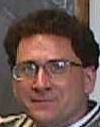 Mark Jarrell
(University of Cincinnati)
Mark Jarrell
(University of Cincinnati)
Mark has been a collaborator since 1992. We have worked together on the DMFT
solution of the Hubbard, Holstein, and periodic Anderson models, all with
quantum Monte Carlo. We also have investigated a number of different
perturbative approaches. Currently we are looking at the DCA as it is
applied to Raman scattering and optical conductivity
in the Falicov-Kimball model.
 Barbara Jones (IBM, Almaden Research Center)
Barbara Jones (IBM, Almaden Research Center)
Barbara works on spin-dependent transport and spintronics. Her current focus
is on current-induced magnetic domain-wall motion in nanopillars. She is a
co-PI on a Nanotechnology Interdisciplinary Research Team award from NSF.
She has hosted two students for one year at the IBM site: Ling Chen and
Alexander Joura.
Barri Letfulov (deceased) (Institute of Metal Physics)
Barri worked with me on a simple theory for the manganites and on how the
electron-phonon interaction modifies the phase separation of the Falicov-Kimball
model. He passed away in 2002.
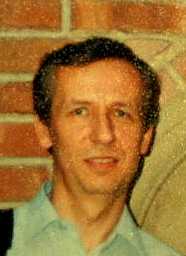 Romek Lemanski (Institute of Low Temperature and Structure Research)
Romek Lemanski (Institute of Low Temperature and Structure Research)
Romek has worked with me on many problems in the Falicov-Kimball model,
but with much of the emphasis lying in the problems of phase separation,
charge-density-wave order, and the competition between the two.
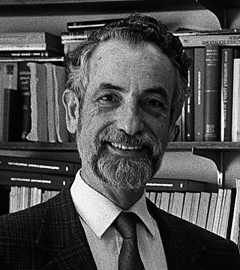 Eliott Lieb
(Princeton University)
Eliott Lieb
(Princeton University)
Elliott and I have worked on two main problems---(i) magnetism and spin
quantum numbers in electron-phonon problems (where we proved that the
ground state is a unique spin-singlet state for a large number of problems),
and (ii) phase separation in the Falicov-Kimball model (where we proved that
the segregation principle, that the ions phase separate from the electrons
at large U, holds in all dimensions).
 Amy Liu
(Georgetown University)
Amy Liu
(Georgetown University)
Amy and I have mainly worked on combining density functional theory with
many-body physics to formulate self-consistent theories of superconductivity
in materials under high pressure, in materials that have strong anharmonic
effects, and in materials that have vertex corrections. She is a co-PI
on the Nanotechnology Interdisciplinary Research Team grant from NSF, and
we are currently trying to combine density functional theory of magnetic
and charge properties of interfaces with many-body physics transport codes
for multilayered nanostructures.
Nicolas Macris (Ecole Polytechnique Federale de Lausanne)
Nicolas worked with me on a number of problems in the Falicov-Kimball
model including phase separation and charge-density-wave ordered
phases.
 Jerry Mahan (Pennsylvania State University)
Jerry Mahan (Pennsylvania State University)
Gerry has worked with me on properties of anharmonic phonons and the electron
phonon interaction. We also have had a number of discussions about
thermopower problems.
Hartmut worked with me on a number of problems of the Bose Hubbard model
from a strong-coupling perturbation theory approach. These included the
Mott transition in pure systems, the Insulator-Glass transition in disordered
systems, and the effects of magnetic fields on the Mott insulator-compressible
phase transition.
 Nate Newman (Arizona State University)
Nate Newman (Arizona State University)
Nate makes Josephson junctions with barriers out of Tantalum Nitride, which
can be tuned through the metal-insulator transition by adjusting the
concentration of Tantalum in the system. I am planning on developing
a theory specifically oriented to this system.
Elisabeth and I worked on a number of problems related to vertex corrections
in superconductors. We focused on tunneling in lead, generic properties in
electron-phonon systems, and also on superconductivity in anharmonic materials
like Lithium.
Thomas has collaborated on a number of problems in DMFT ranging from optical
conductivity in the Hubbard model to Raman scattering. We wrote a review
article together on transport properties in DMFT.
Serhii and I are planning a collaboration on nonequilibrium properties of
Josephson junctions, especially the current-voltage characteristics and
the switching speed.
 Andrij Shvaika
(Instidute of Condensed Matter Physics)
Andrij Shvaika
(Instidute of Condensed Matter Physics)
Andrij has worked on the problem of resonant Raman scattering and on using
the dynamical cluster approximation for nonresonant Raman scattering in
two dimensions. Both problems are solved for the Falicov-Kimball model.
Daniel worked with Elliott Lieb and myself on the phase separation problem
in the Falicov-Kimball model on an arbitrary bipartite lattice. We were
able to prove the longheld segregation principle conjecture.
Veljko has collaborated on problems in the Falicov-Kimball model and in
anharmonic effects in the electron-phonon problem. He has worked most
on properties of YbInCu4 and on thermal transport.
We have also written a number
of review articles on the Falicov-Kimball model together.
Graduate and Postdoctoral Advisers
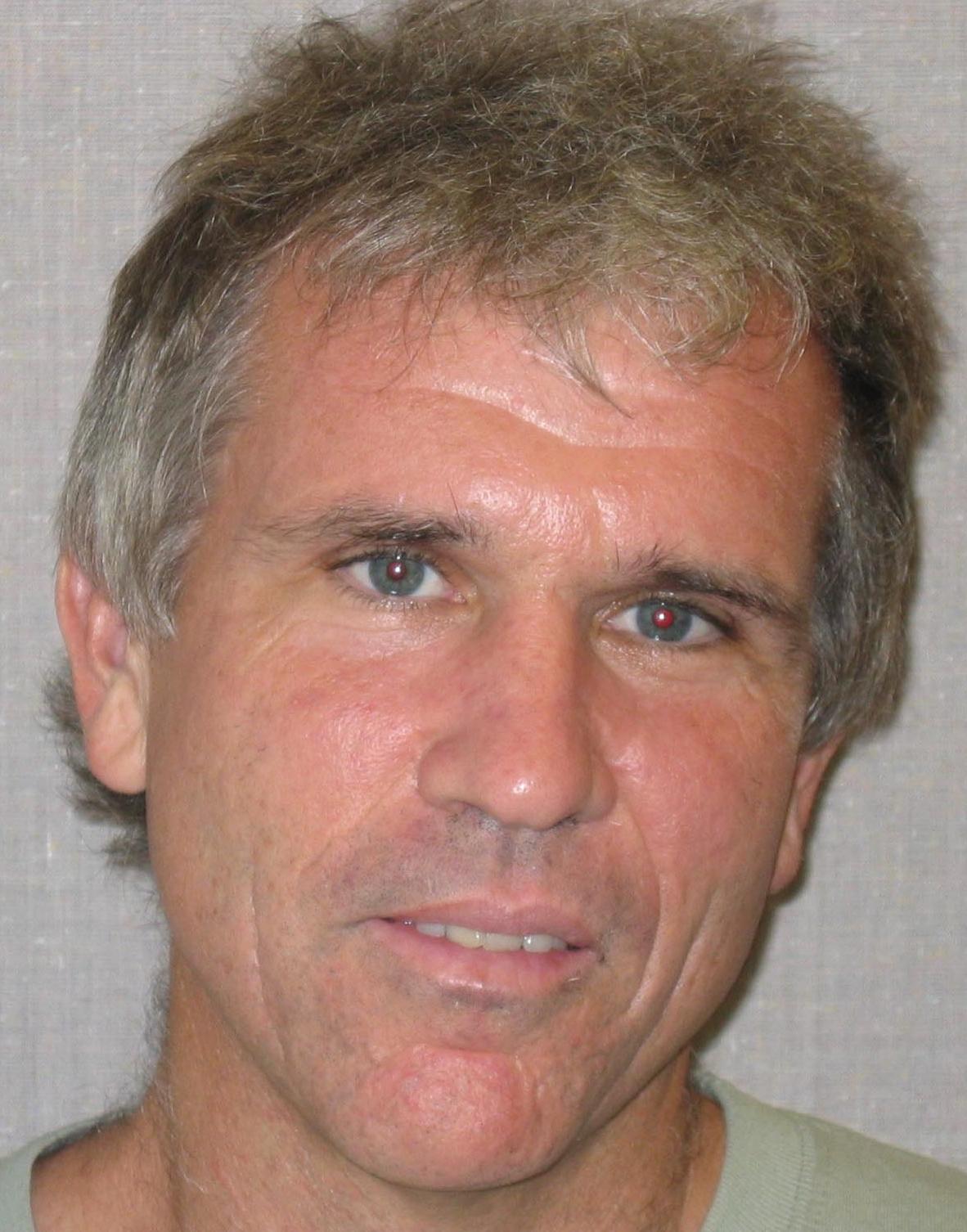 Richard Scalettar (1993--1994, University of California, Davis)
Richard Scalettar (1993--1994, University of California, Davis)
During my postdoctoral fellowship at UC Davis, I worked on a number of
problems in the electron-phonon interaction and on the Bose Hubbard model.
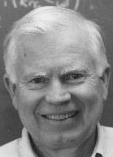 Doug Scalapino (1991--1993, University of California, Santa Barbara)
Doug Scalapino (1991--1993, University of California, Santa Barbara)
Doug introduced me to the electron-phonon problem, many-body perturbation theory,
and quantum Monte Carlo techniques. Most of our work together focused on
different aspects of the Holstein model.
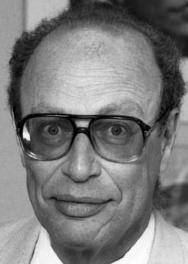 Leo Falicov
(1989--1991, University of California, Berkeley, deceased)
Leo Falicov
(1989--1991, University of California, Berkeley, deceased)
Leo was my graduate advisor. We worked on a problem in magnetic breakdown,
and several problems in exact diagonalization, including a discovery of
hidden symmetry in a wide range of intermediately sized small clusters.
He passed away in 1996.
Postdoctoral Fellows
Volodomyr is working on developing a nonequilibrium formalism for the
many-body problem and solving it for the Falicov-Kimball model.
Niki is working on transport properties of Josephson junctions including
calculating the figure of merit with an equilibrium formalism and eventually
working on developing a nonequilibrium formalism.
Denis has worked with me on thermal transport problems and on the metal-insulator
transition away from particle-hole symmetry. He also works with Amy Liu on DFT
problems ranging from nanomagnets to magnetic metal/semiconductor
interfaces.
 Branislav Nikolic
(2000--2002, now at University of Delaware)
Branislav Nikolic
(2000--2002, now at University of Delaware)
Branislav worked on a number of problems in Josephson junctions including tuning
barriers through the MIT, examining quasiparticle DOS and the minigap, and
examining Schottky barrier effects. He is now an assistant professor.
Alex Quandt (1999--2001, now at the University of Greifswald)
Alex worked jointly with myself and Amy Liu. He worked with me on thermal
transport problems, and with Amy on nanotubes made from boron and carbon.
He is now an assistant professor.
Paul Miller (1997--2000, now at Brandeis University)
Paul worked on the Josephson junction problem, developing a number of computer
codes for calculating the critical current and the normal state resistance.
He is currently working in neuroscience at Brandeis.
Sven Rudin (1997--1999, now at Los Alamos National Laboratory)
Sven was a joint postdoc with myself and Amy Liu. He worked on high pressure
phases of Sulfur and Selenium, on determining the electron-phonon interaction
in Indium, and on anharmonic phonons in Lithium. He is currently at
Los Alamos National Laboratory.
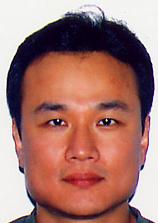 Woonki Chung
(1996--1999, now at Georgetown University)
Woonki Chung
(1996--1999, now at Georgetown University)
Woonki worked on the original Falicov-Kimball metal insulator transition and
on the appearance of classical intermediate valence states in the
Falicov-Kimball model. He is now a computer system administrator in the
Physics Department at Georgetown University.
Graduate Students
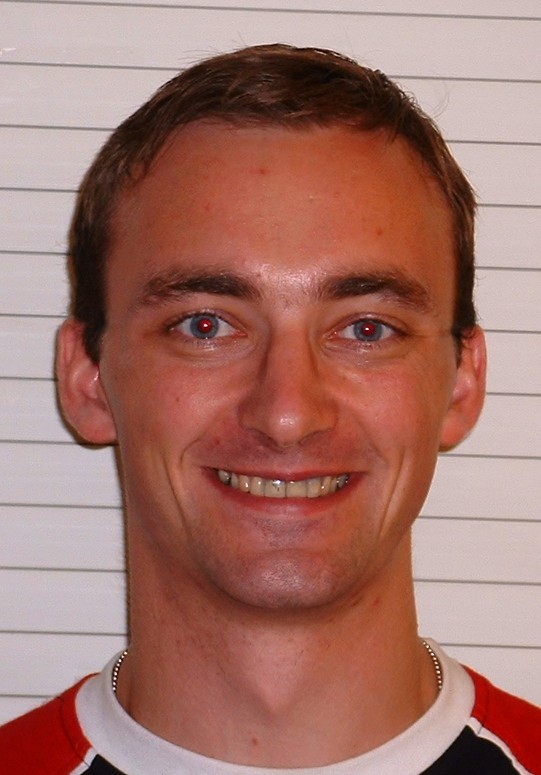 Alexander Joura (2002-- , Ph.D., Georgetown)
Alexander Joura (2002-- , Ph.D., Georgetown)
Sasha is working on thermal transport problems, and is currently
looking at spintronic devices on an apprenticeship at IBM.
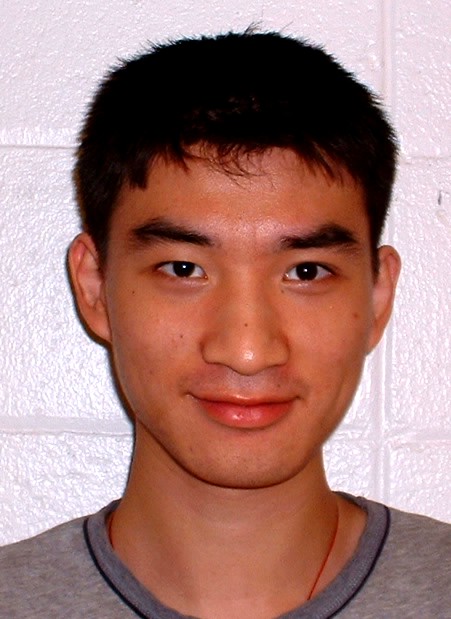 Ling Chen (2002-- , Ph.D. Georgetown)
Ling Chen (2002-- , Ph.D. Georgetown)
Ling has worked on charge-density-waves and on magnetic domain wall motion
in ferromagnetic nanostructures (while on his apprenticeship at IBM). He
is currently working on how to calculate the capacitance of a strongly correlated
nanostructure via a direct calculation of the dielectric matrix for the
inhomogeneous system.
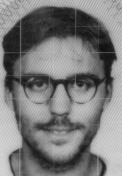 Matthias Niemeyer (1999, Diplome thesis, University of Bonn)
Matthias Niemeyer (1999, Diplome thesis, University of Bonn)
Matthias completed his Diplome thesis on magnetic field effects on the Bose
Hubbard model phase diagram.
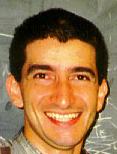 Niki Tahvildar-Zadeh (1996--1999, Ph.D., University of Cincinnati)
Niki Tahvildar-Zadeh (1996--1999, Ph.D., University of Cincinnati)
Niki worked on a project to apply the local approximation with quantum
fluctuations to the spin density wave order in Chromium and its alloys.
He then worked on the phase diagram and transport properties of the
periodic Anderson model.
Undergraduate Students
Ron Stimmel (2004, GUROP)
Ron has worked on developing and carrying out student interviews for the
quantum world around us to ascertain the long-term learning that has
taken place in the course. This work was supported by the University
through the GUROP program.
Jack Higgins (1996--1997, Senior Thesis)
Jack worked on the Bose Hubbard model and the metal-insulator transition.
 Lance Cooper (University of Illinois, Urbana, Champaign)
Lance Cooper (University of Illinois, Urbana, Champaign) Lance Cooper (University of Illinois, Urbana, Champaign)
Lance Cooper (University of Illinois, Urbana, Champaign)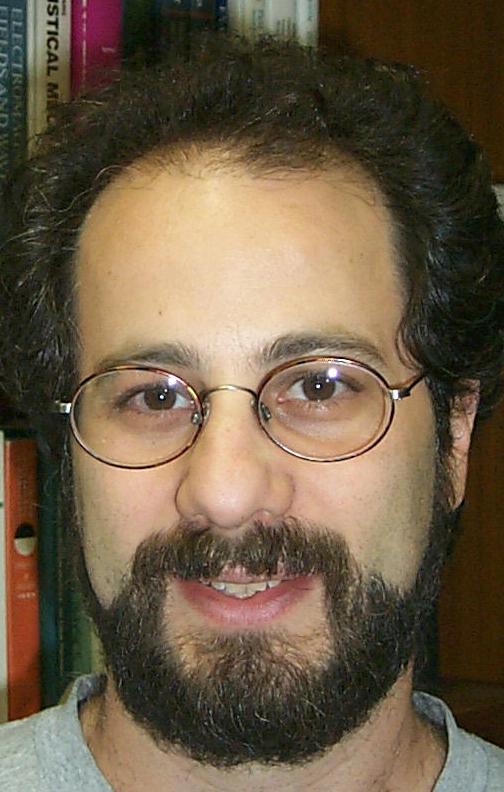 Tom Devereaux
(University of Waterloo)
Tom Devereaux
(University of Waterloo) Christian Gruber
(Ecole Polytechnique Federale de Lausanne)
Christian Gruber
(Ecole Polytechnique Federale de Lausanne) Mark Jarrell
(University of Cincinnati)
Mark Jarrell
(University of Cincinnati) Barbara Jones (IBM, Almaden Research Center)
Barbara Jones (IBM, Almaden Research Center) Eliott Lieb
(Princeton University)
Eliott Lieb
(Princeton University) Amy Liu
(Georgetown University)
Amy Liu
(Georgetown University) Jerry Mahan (Pennsylvania State University)
Jerry Mahan (Pennsylvania State University) Hartmut Monien
(University of Bonn)
Hartmut Monien
(University of Bonn) Nate Newman (Arizona State University)
Nate Newman (Arizona State University)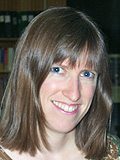 Elisabeth Nicol
(University of Guelph)
Elisabeth Nicol
(University of Guelph)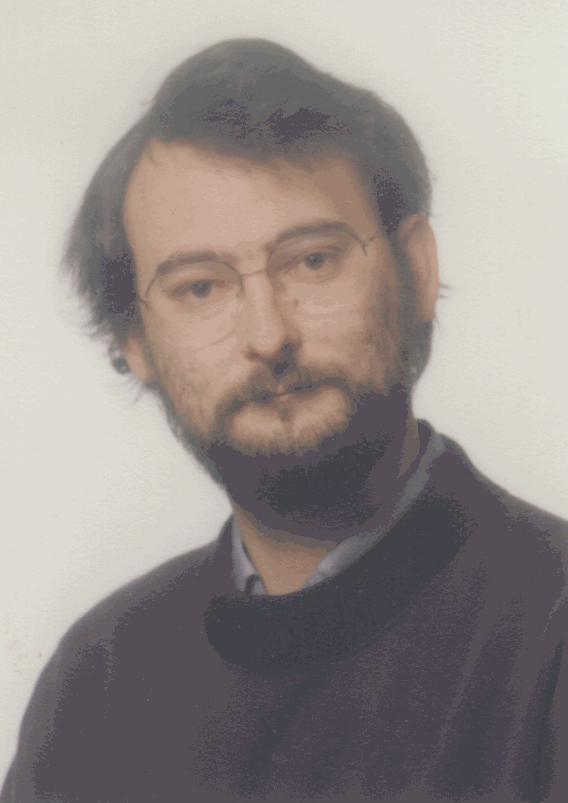 Thomas Pruschke
Thomas Pruschke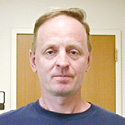 Serhii Shafraniuk (Northwestern University)
Serhii Shafraniuk (Northwestern University) Andrij Shvaika
(Instidute of Condensed Matter Physics)
Andrij Shvaika
(Instidute of Condensed Matter Physics) Richard Scalettar (1993--1994, University of California, Davis)
Richard Scalettar (1993--1994, University of California, Davis) Doug Scalapino (1991--1993, University of California, Santa Barbara)
Doug Scalapino (1991--1993, University of California, Santa Barbara) Leo Falicov
(1989--1991, University of California, Berkeley, deceased)
Leo Falicov
(1989--1991, University of California, Berkeley, deceased)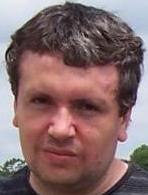 Volodmyr Turkowski
(2003-- )
Volodmyr Turkowski
(2003-- ) Niki Tahvildar-Zadeh (2003-- )
Niki Tahvildar-Zadeh (2003-- )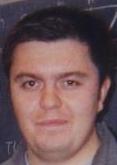 Denis Demchenko (2002-- )
Denis Demchenko (2002-- ) Branislav Nikolic
(2000--2002, now at University of Delaware)
Branislav Nikolic
(2000--2002, now at University of Delaware) Woonki Chung
(1996--1999, now at Georgetown University)
Woonki Chung
(1996--1999, now at Georgetown University) Alexander Joura (2002-- , Ph.D., Georgetown)
Alexander Joura (2002-- , Ph.D., Georgetown) Ling Chen (2002-- , Ph.D. Georgetown)
Ling Chen (2002-- , Ph.D. Georgetown) Matthias Niemeyer (1999, Diplome thesis, University of Bonn)
Matthias Niemeyer (1999, Diplome thesis, University of Bonn) Niki Tahvildar-Zadeh (1996--1999, Ph.D., University of Cincinnati)
Niki Tahvildar-Zadeh (1996--1999, Ph.D., University of Cincinnati)